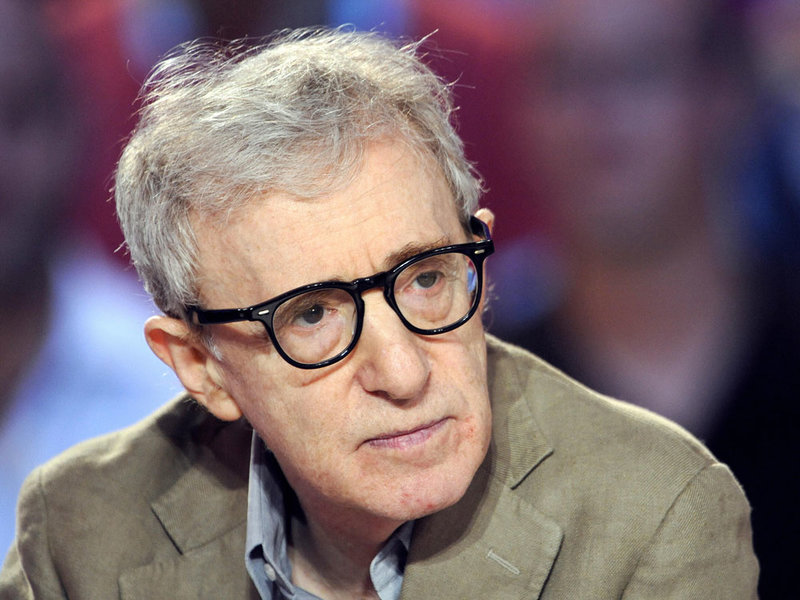Woody Allen, great comedian or the punchline of a bad joke? Photo from npr.org.
“Separate the art from the artist.”
This is something that is often brought up today when talking about “House of Cards” with Kevin Spacey, or the films of Roman Polanski. It has also been brought up with Woody Allen, his films and comedic legacy.
I, for one, have no problem separating the art from the artist, and in the case of Woody Allen, they both suck.
Allen is lauded by his supporters as a cinematic genius who brought comedy and real life into one brilliant formula not seen before. To them, he is as important to comedy as Mel Brooks (“Young Frankenstein,” “The Producers,” “Blazing Saddles”). Comedy Central even named him the fourth greatest comedian of all time, ahead of Eddie Murphy, Steve Martin and many more. People from Roger Ebert to Marlon Brando have called him a genius, which is ridiculous considering his films and comedy is simply not very good.
Woody Allen’s jokes are based on his life experiences. That is a strategy that has worked for many and helped him break into the mainstream, but it is glaringly obvious that he does it more for validation of his own actions. He goes into long rants about nothing, in which himself is the only driving factor. Many of his jokes involve him getting into some over-the-top situation, such as shooting a moose or getting kidnapped, then spinning it to be this sob story as a way to bring attention to himself and in hopes to get laughs. Granted, it worked at the time, but has been perfected by many other comedians who use the formula in more regular situations, like John Mulaney, that it no longer comes off as funny.
Make no mistake, Woody Allen’s humor is not based on his neurotic nature but off of his narcissistic nature cloaked in a neurotic cover.
Take his most famous film: “Annie Hall.” It’s well-acted by Diane Keaton and has some solid plot points, but Allen shows his ego every time he faces the camera. Breaking the fourth wall can be endearing, and for many, has been, but Allen does it in such a way that it comes off like he wants to tell you, “look how smart this film is.” He wants the viewer to understand the genius of his script. He also shows artwork from the “Inside Woody Allen” cartoon to show that he is a big deal.
But more importantly, it shows a bigger problem with Woody Allen movies: Woody Allen.
He is always outclassed on screen, especially in his movies with Keaton. He has very little range, which is why most of his films in which he stars in he plays the same character. And I can’t even talk about “Manhattan,” where he decides to romance an underage girl. It’s why no one talks about films that he only acted in like they do with someone like Clint Eastwood.
Maybe I just do not get him, and while there shouldn’t be many Allen defenders anymore to begin with, what many people seem to defend as smart humor is less of “Community”-type meta humor and more of a guy-obsessed-with-himself-who-thinks-he’s-better-than-the-audience humor.
Woody Allen makes movies for himself. His jokes are not jokes, they are stories made so people will think highly of him. His films are to justify his own degrading nature of the people around him. They are always said to be smart, but he himself is not smart. He is just using film as a platform to show his own narcissistic thoughts of himself and put it together with a persona that is just unrelatable enough to catch the interest of some people. He is overrated as a comedian, as a writer and as an actor. Even without the revelations about his personal life, his films are not worth viewing today.




